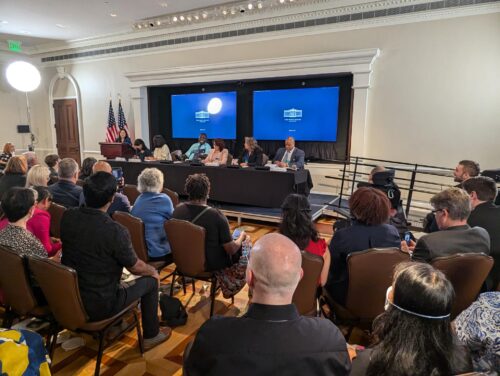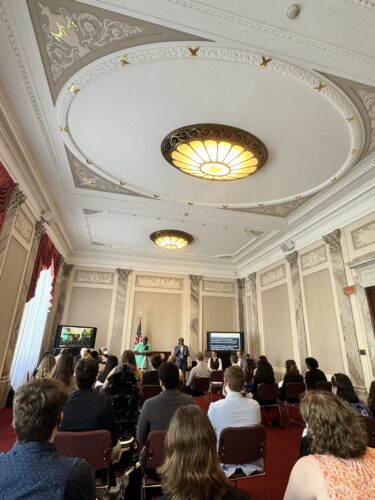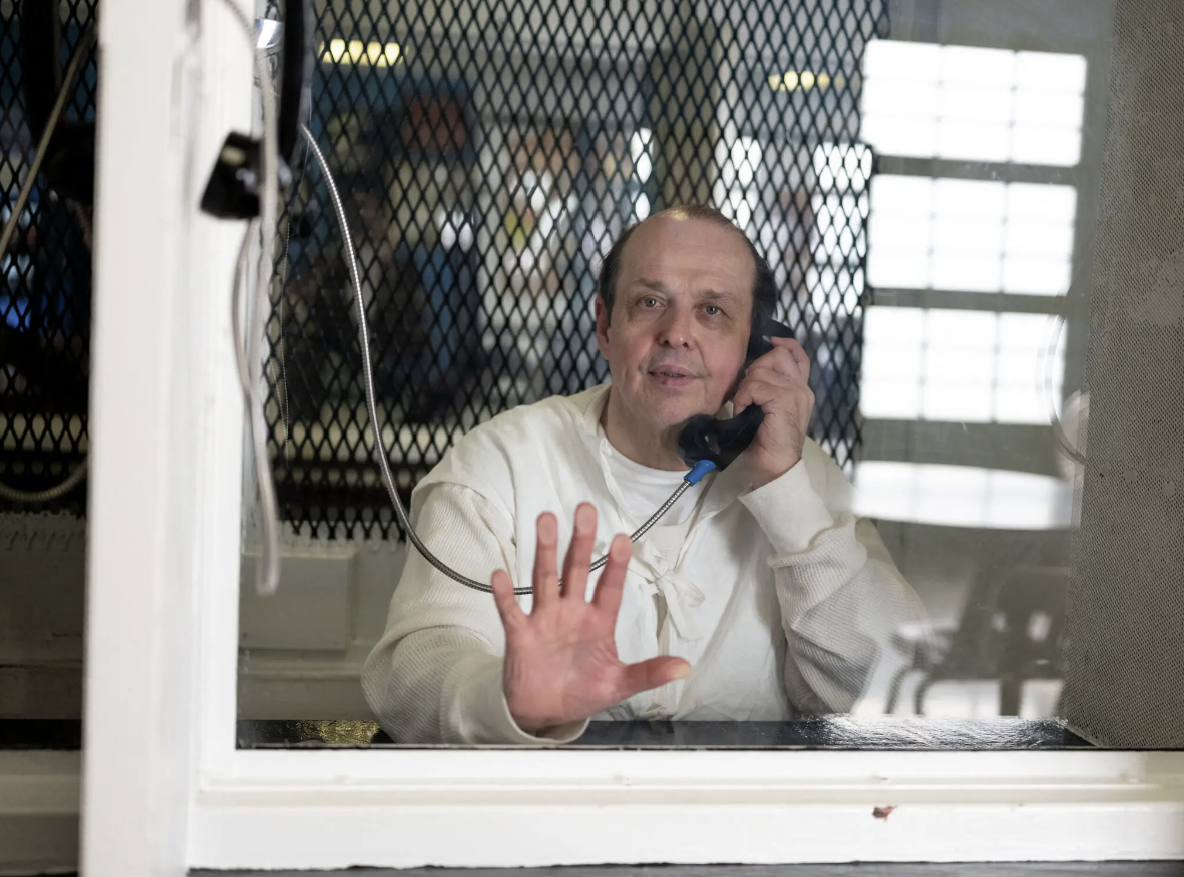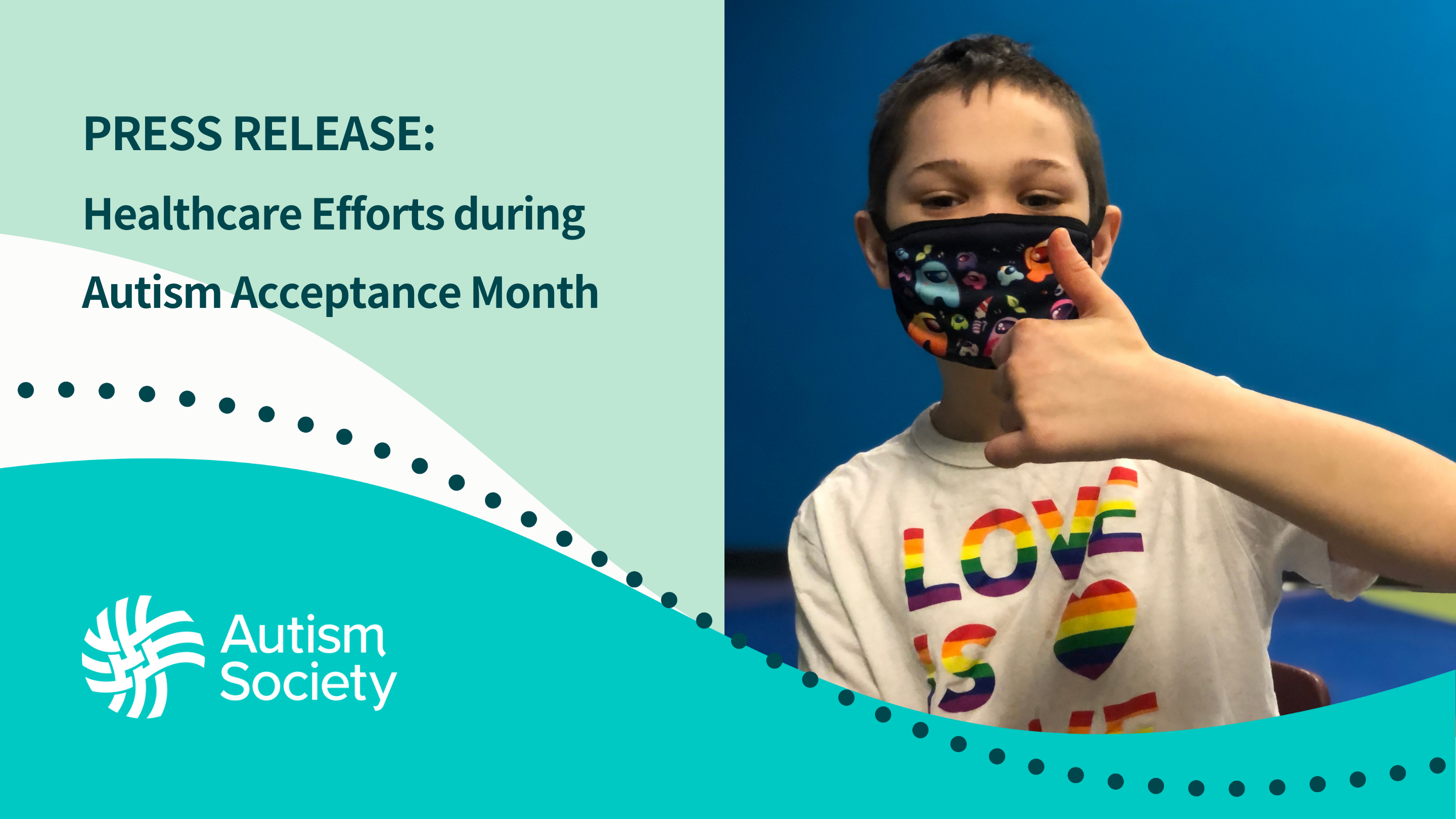
In this issue of Capitol Connection, see updates on the bill to reauthorize the Autism CARES Act, a House amendment to prevent the FDA from banning electric shocks, election resources, a summary of Olmstead anniversary events, and more. The Autism CARES Act must be reauthorized by September 30. Use the Autism Society’s Action Center to educate your Members of Congress about the importance of continuing this law.
Autism CARES Update
On June 12, the House Energy and Commerce Committee passed the Autism Collaboration, Accountability, Research, Education, and Support (CARES) Act of 2024 (HR 7312). The bill reauthorizes the Autism CARES Act through 2029. It also creates new centers for excellence with one to focus on the needs of those with complex medical and behavioral support needs; a new Autism Intervention Research Network to address communication needs; authorizes a study and report on how to increase the number of developmental-behavioral pediatricians; and includes directives for increased research into the aging process for adults with Autism. The bill increases funds for Autism CARES programs by $56 million. The Autism Society sent a letter urging a vote and swift passage by the House of Representatives. Educate Members of Congress using the Autism Society action alert.
Electric Shock Treatment
A House bill to provide funding for the Department of Agriculture and other agencies includes a line item to prevent the FDA from banning electric shock devices (see Sec 722, p. 93). This language specifically targets the use of the electric shock devices used by the Judge Rotenberg Center, a Massachusetts educational institution. The bill was approved by the subcommittee and advances to the House Appropriations Committee on July 10th. Please use our Action Alert to educate Representatives about this harmful practice.
Election Resources and Voting Guide
The Autism Society of America has released a comprehensive Election Resource page and Voting Guide designed to support Autistic individuals through every step of the voting process. The guide is user-friendly and provides clear instructions on registering to vote, understanding candidates and issues, deciding on a voting method, planning for voting day, and remembering what to bring to the polls. Check out the resources today and make your voice heard!
25th Anniversary of Olmstead Decision
June 22 marked the 25th anniversary of the landmark U.S. Supreme Court decision in Olmstead v. L.C. This historic ruling declared that unjustified segregation of individuals with disabilities constitutes discrimination under Title II of the Americans with Disabilities Act (ADA) (see Autism Society’s statement). The Autism Society participated in several celebrations at the White House, on Capitol Hill, and the Department of Justice.

Panel at the White House for the 25th Anniversary of Olmstead
On June 18, the Autism Society participated in a White House event celebrating Olmstead’s impact over the last quarter of a century. We also participated in the Olmstead at 25 reception hosted by our Justice Center partner, the Bazelon Center for Mental Health Law. On June 20, the Autism Society participated in an event Hosted by the U.S. Department of Justice’s Civil Rights Division and the U.S. Department of Health and Human Services Administration for Community Living and Office for Civil Rights (see the full video here).
CCD Olmstead Event

Panel on Capitol Hill to Celebrate 25th Anniversary of Olmstead
The Consortium for Constituents with Disabilities Housing, Long-term Services and Supports, and Rights Task Forces celebrated the 25th anniversary of the Supreme Court Olmstead v. L.C. decision with a Capitol Hill panel that included several individuals with lived experience. Their testimony focused on how this decision affects their lives and what Congress must do to ensure that everyone has equitable access to community living. Speakers included Elio McCabe, Autistic Women & Non-binary Network; Ricardo Thornton, Sr., and Kerima Cevik from Project ACTION! and a parent of a nonspeaking Autistic adult and disability justice activist; and Bernard Simons, former Deputy Secretary of Developmental Disabilities Administration. (See full CCD statement)
Senate Hearing on Workforce Innovation and Opportunity Act (WIOA) Reauthorization
The Senate Health Education Labor and Pensions Committee recently held a hearing on reauthorizing the Workforce Innovation and Opportunity Act (WIOA). Witnesses focused on the need for increased funding, improved coordination, and modernization of workforce development systems. Taylor White, of New America, focused on the investment in youth programs and the need for better data tracking. David Bradly from Jobs for the Future emphasized flexibility in learning opportunities and career services. Dr. Monty Sullivan of the Louisiana Community and Technical College System talked about low labor force participation and an increasing need for effective training programs. Dr. Lisa Bly-Jones of the Chicago Jobs Council focused on economic security and equity in workforce training. The hearing stressed an urgent need for WIOA reauthorization to support job seekers and employers.
Senate Hearing on Work and Social Security Disability Benefits
A Senate Finance Committee hearing entitled, “Work and Social Security Disability Benefits,” chaired by Senator Wyden (D-OR) addressed the challenges faced by disability beneficiaries and proposed possible reforms. Important issues discussed were long delays in proving disability, complex rules, and the fear of losing benefits if returning to work. Two bipartisan bills were discussed: one to update SSI limits and another to protect workers from losing benefits.
New ABLE Program Bill
Senators Casey (D-PA) and Schmitt (R-MO), along with seven bipartisan cosponsors, introduced the Ensuring Nationwide Access to a Better Life Experience (ENABLE) Act (S. 4541) on June 13. This bill would make three provisions permanent under the original ABLE Act. These three provisions include one that allows employed individuals to contribute more to their account, the ABLE Saver’s Credit that allows an individual to qualify for a credit of up to $1,000, and a 529 to ABLE rollover that allows a beneficiary to roll over their savings from a 529 education account to an ABLE account. See more within Senator Schmitt’s press release on the legislation.
Alternatives to the Guardianship Education Act
Senator Casey and Representative Mary Gay Scanlon (D-PA) introduced the Alternatives to Guardianship Education Act (S 4283/ HR 8328). This bill would establish grants to provide education on guardianship alternatives for older adults and people with disabilities to healthcare workers, educators, family members, court workers, and court-related personnel. See the Senate Special Committee on Aging one-pager for more information.
Bill to Increase Age for Child’s Insurance Benefits
On June 17, Senators Cassidy (R-LA) and Hassan (D-NH) introduced S. 4555, a bill to amend Title II of the Social Security Act to increase the age threshold for eligibility for child’s insurance benefits on the basis of disability. The bill has been referred to the Committee on Finance. For many individuals with Autism, the transition from childhood to adulthood presents significant challenges in securing financial support. By increasing the age threshold, the bill ensures more individuals with Autism can continue to receive benefits as they navigate adulthood.
New Higher Education Bills
Senator Casey (D-PA) introduced two new bills to make higher education more accessible to the disability community. The first, called the (S 4380) which Senator Van Hollen (D-MD) and Senator Booker (D-NJ) cosponsored, allows students with disabilities to remain eligible for Pell Grants and other government grants with a smaller course load. The second bill, the Expanding Disability Access to Higher Education Act (S 4379), which is cosponsored by Senator Butler (D-CA), Van Hollen (D-MD), Padilla (D-CA), and Booker (D-NJ), provides additional funding for the Federal Early Outreach and Student Services Programs for students with disabilities. These programs help first-generation and low-income students pursue higher education. The Autism Society supports these bills.
Justice Corner
FBI Investigation into Fraud in Autism Services
The FBI is investigating Medicaid fraud involving an Autism service center in Minnesota. Minimum standards and little regulatory oversight are cited as a concern surrounding some providers. While there are few details available about the current investigation in Minnesota, other states, such as Florida, have documented cases of billing fraud and lack of services provided to clients. Read more here: FBI Investigates Autism Centers, Which Have Exploded In Growth – Disability Scoop
DOJ Utah Finding
On June 18, the Justice Department announced its finding that Utah is violating the Americans with Disabilities Act (ADA) by unnecessarily segregating youth and adults with intellectual and developmental disabilities (I/DD) instead of helping them find work and contribute meaningfully to their communities. The department found that the State was relying on segregated settings, such as large workshops and day facilities where people with I/DD had limited interactions with people without disabilities and were paid less than minimum wages. The ADA and U.S. Supreme Court’s decision in Olmstead v. L.C. require state and local governments to make services for people with disabilities available in the most integrated setting appropriate to each person‘s needs.
Similar findings were made against the state of Missouri. In Alaska, an investigation found that voters with disabilities were not provided accessible ballots, accessible polling places and that its elections website was inaccessible.
Share:





